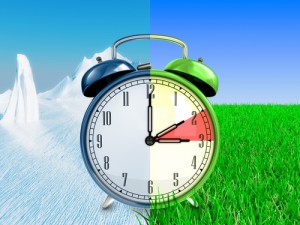Daylight Savings Time and "Cyberloafing"

(Photo: Shutterstock)
New research suggests that people “cyberloaf” (i.e. websurf instead of working) more when they are tired. Some people may find this surprising. (We do not.) If nothing else, this is another argument against Daylight Savings Time. As the BPS Research Digest explains:
The investigators recognised an event that affects everyone’s sleep: when the clocks go forward for Daylight Saving Time. Prior evidence suggests we lose on average 40 minutes of sleep per night following the switch, as our body rhythms struggle to adjust. (Exploiting a fixed phenomena is an example of a quasi-experiment; another would be the hurricane that occurred within this study on emotional hangovers.) The researchers used data from 203 metropolitan areas in the USA, weighted by area size, across 2004-2009. They found that Entertainment-related searches on the Monday after DST were 3.1% more prevalent than the previous Monday, and 6.4% than the subsequent Monday.
The research adds on to an existing body of work on willpower as a limited resource, which we’ve blogged about before.
Open question: does reading Freakonomics at work count as cyberloafing?
We’ll keep an eye out for a traffic increase on Monday.

Comments